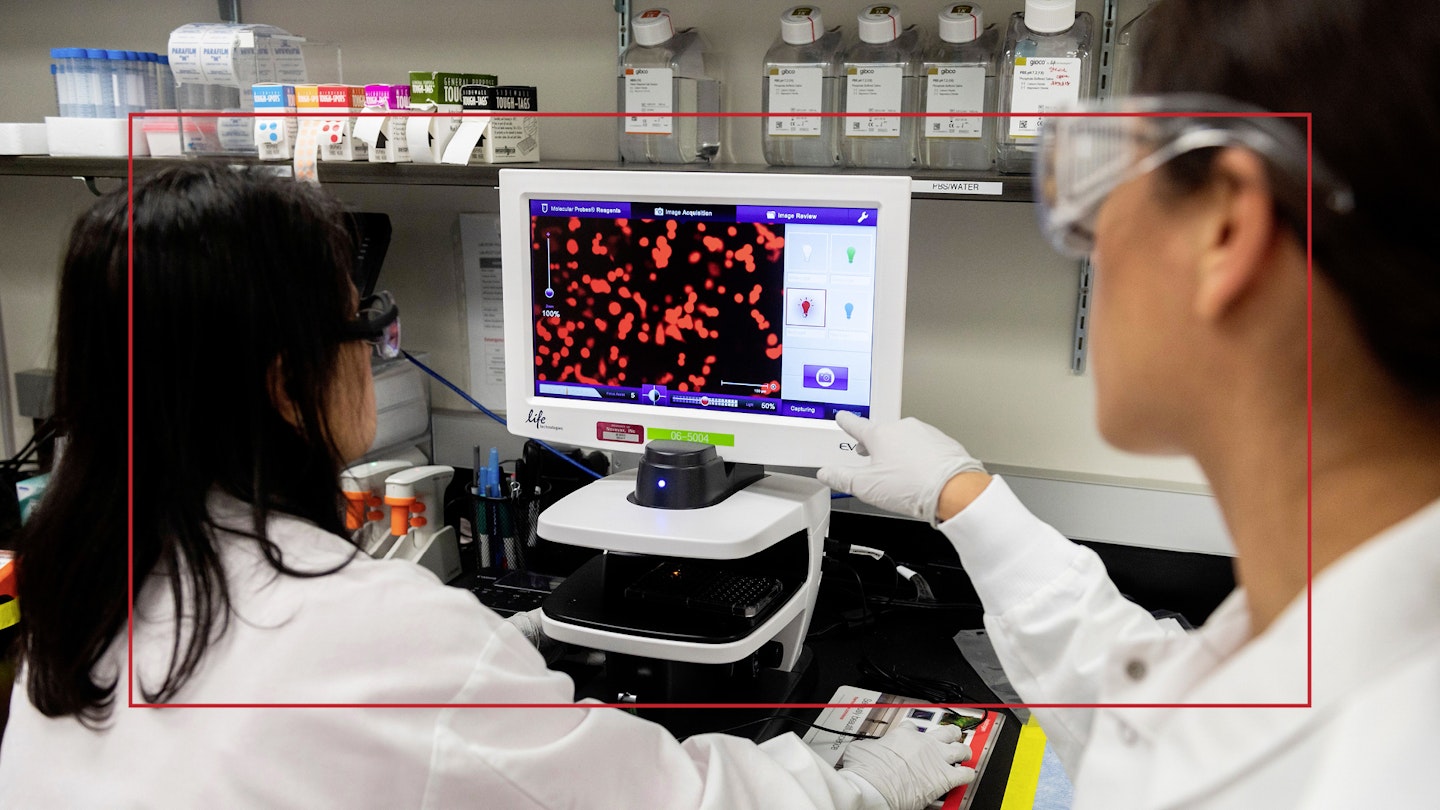Dr Özlem Türeci, Professor Sarah Gilbert, Professor Katie Ewer, Dr Kizzmekia Corbett, Professor Melissa Moore, Dr Kathrin Jansen, Dr Nita Patel: these are just a few of the women at the top of their game, leading teams to develop a Covid-19 vaccine this year. Katie Ewer, associate professor and senior immunologist at the Jenner Institute, has been working on the Oxford/AstraZeneca vaccine. Here, she says recent publicity for senior female academics might help end sexism in science for good.
I had to come off social media in the depths of the pandemic because I couldn’t handle hearing about the deaths and hospitals at capacity. It felt like too much pressure when so much was riding on what we were doing. If I thought about it, it made me want to go and hide, so I focused on what I needed to do each day instead of the bigger picture.
When our results came out at the end of November – showing our vaccine offers 70.4% efficacy (which could rise to 90% by tweaking the doses) – we were elated. We’re still busy and the trial is still very much in full flow. We’re getting the blood samples from the volunteers we vaccinated right at the beginning, who have now reached the six-month point, so we can work out how long the immune responses are lasting.
The past 10 months have been such hard work. There have been no days off, no early finishes, just constant pressure. I’ve worked every weekend in the last month and it’s been 11pm finishes recently. We’ve really relied on the support of our families – my husband Glen has been amazing. We’ve all hit walls of exhaustion, but we knew we had to keep going. As the tiredness grew, the volume of the music in the lab would creep up. We had a visit from the PM in September which, political views aside, gave everyone a lift to know we were being recognised.
Now, it’s over to the regulator in the UK, who thoroughly checks all of our data. Then it’s over to the Department of Health, who will get it out there, and then the public, to go and get vaccinated. We’ve done our job. I’m not worried about the small minority of anti-vaxxers. It’s those who are hesitant about getting the vaccine I’m concerned about. I’m hoping, once people start taking it, it will reassure the rest of the population. Other than mask-wearing, social distancing and lockdowns, the vaccine is the only thing we have that can possibly help.
To those who are worried about safety or risk, I would say that nothing in life is 100% safe. We get in cars, we drink alcohol, we get on aeroplanes and we know all of those things come with tiny risks. We accept those risks as part of daily life and having a vaccine is the same. But vaccines are extremely safe, and certainly far safer than getting Covid-19 and having to live with the long-term consequences, which we don’t yet fully understand.
It’s been brilliant seeing so many women recognised in science this year. I think it will only increase the uptake of STEM subjects among girls. Some have probably stayed away before because they don’t identify with the people they see represented. A lot of the senior figures around here are women but, until this year, we haven’t been given the recognition and publicity that senior male scientists are afforded. You’ve only got to look in the papers these past few weeks to see how Sarah Gilbert, my boss and lead Oxford vaccine scientist, has been described as the mother of triplets, while Andrew Pollard, chairman of the Oxford vaccine group, has been described as a record-breaking amateur mountaineer. It’s disgusting that we are still defined by having a uterus while men are defined by their adventurous occupations.
I don’t think anybody has written about how many kids Andrew Pollard has. We’re still breaking down some of those sexist stereotypes, but the publicity given to senior female scientists working on this vaccine can only have helped with that.
Most vaccines that go into development don’t make it; they don’t work. The highs are high, but there are a lot of lows. But having done it once, I think we can do it again.
